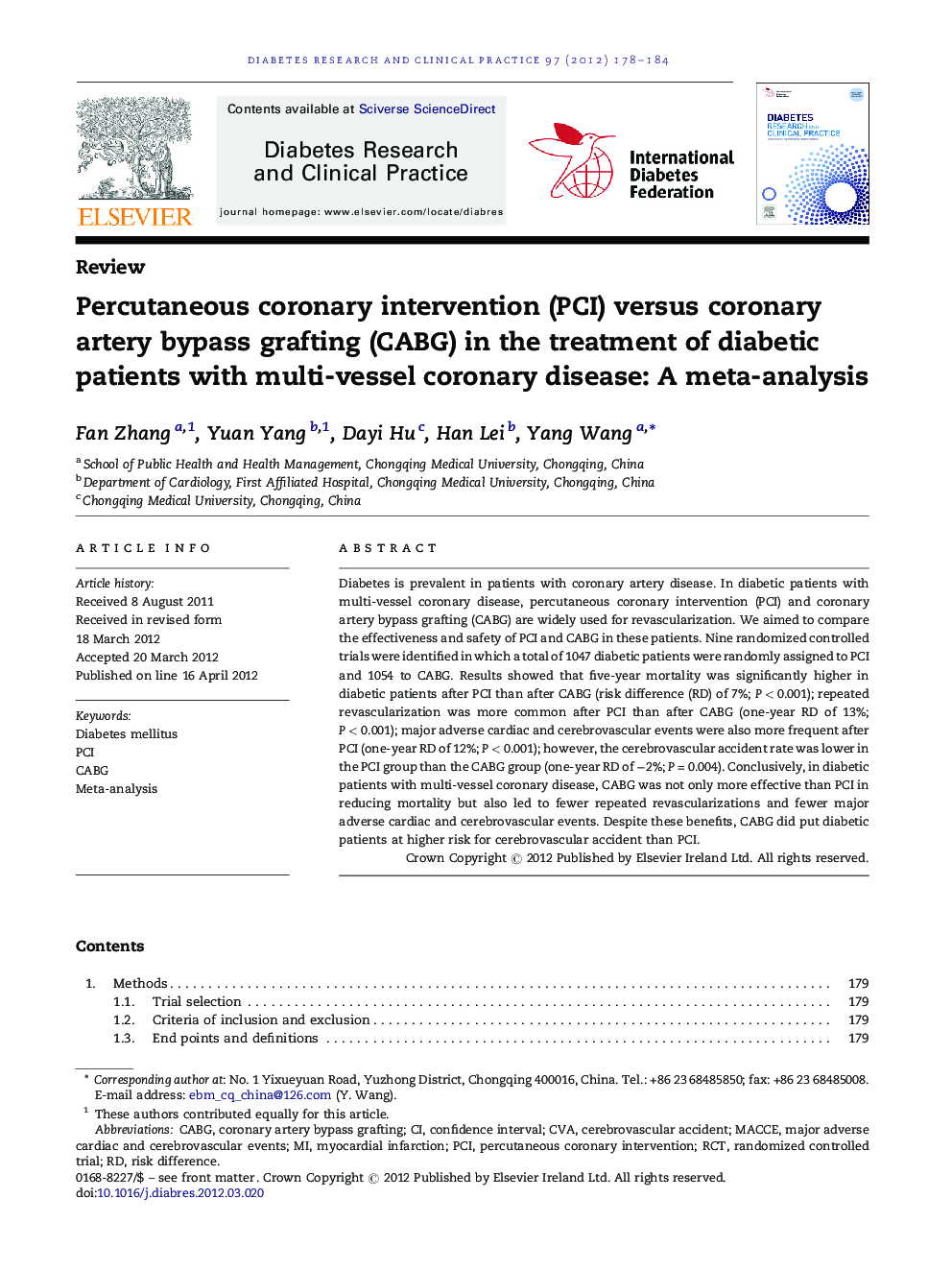| Article ID | Journal | Published Year | Pages | File Type |
|---|---|---|---|---|
| 2797106 | Diabetes Research and Clinical Practice | 2012 | 7 Pages |
Diabetes is prevalent in patients with coronary artery disease. In diabetic patients with multi-vessel coronary disease, percutaneous coronary intervention (PCI) and coronary artery bypass grafting (CABG) are widely used for revascularization. We aimed to compare the effectiveness and safety of PCI and CABG in these patients. Nine randomized controlled trials were identified in which a total of 1047 diabetic patients were randomly assigned to PCI and 1054 to CABG. Results showed that five-year mortality was significantly higher in diabetic patients after PCI than after CABG (risk difference (RD) of 7%; P < 0.001); repeated revascularization was more common after PCI than after CABG (one-year RD of 13%; P < 0.001); major adverse cardiac and cerebrovascular events were also more frequent after PCI (one-year RD of 12%; P < 0.001); however, the cerebrovascular accident rate was lower in the PCI group than the CABG group (one-year RD of −2%; P = 0.004). Conclusively, in diabetic patients with multi-vessel coronary disease, CABG was not only more effective than PCI in reducing mortality but also led to fewer repeated revascularizations and fewer major adverse cardiac and cerebrovascular events. Despite these benefits, CABG did put diabetic patients at higher risk for cerebrovascular accident than PCI.
